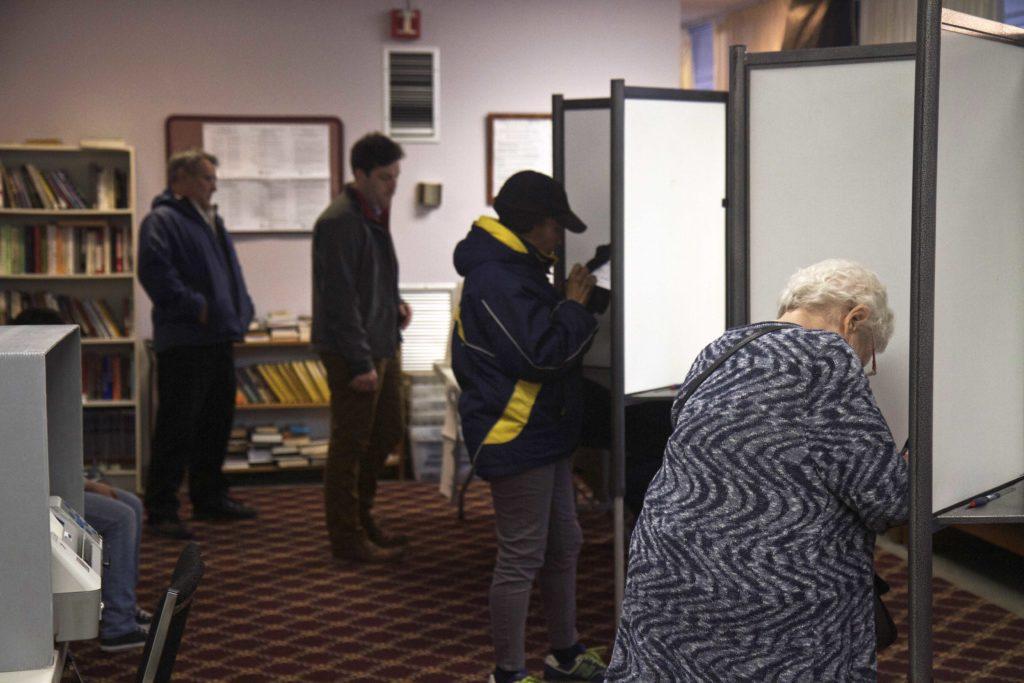By Mack Hogan, news staff
Massachusetts voters took to the polls Tuesday, March 1, favoring Donald Trump and Hillary Clinton in the Republican and Democratic primaries, respectively.
Both Clinton and Trump secured victories in seven out of 11 contested states on Super Tuesday. The Massachusetts Democratic primary was the closest race of the night. Clinton, who earned double-digit percentage victories in every other state she won, edged out Bernie Sanders with 50 percent of the vote to Sanders’ 49 percent, according to the New York Times.
“I think Hillary’s slight victory shows her inability to resonate among young voters,” Jonathan Kaufman, director of Northeastern’s School of Journalism, said.
frontrunner Donald Trump beat runner-up John Kasich by 31.3 percent. With a delegate total on track for the required 1,236, Trump’s Super Tuesday victories have many projecting him as the eventual nominee.
“I’m not saying Trump has this locked up, but he’s a lot more formidable of a candidate than a lot of us predicted, and there’s a bit of a scramble in the Republican Party to figure him out,” Michael Dukakis, 1988 Democratic presidential nominee and current political science professor at Northeastern, said. “Speaking as a Democrat, I like the idea of running against him because he’s vulnerable.”
However, both the Clinton and Trump campaigns have serious obstacles to overcome following Tuesday. In a field of five contenders, Trump faces a deeply divisive primary campaign. While support for the New York real estate mogul has thus far been broad and strong, it remains to be seen whether a party unified behind an establishment candidate could push him out of the race.
“What we don’t know is how much Trump’s statements and his bombast weakens his support,” Kaufman said. “Exit polls show that people who decided late decided against Trump. What’s clear is 30 to 40 percent of Republican voters will go for him no matter what, but can he get above that? So far, he has yet to prove that’s possible.”
Clinton, too, is trying to reconcile a divided party in a primary fight that has gone on much longer than previously anticipated. Fighting against record turnouts for Republicans, the Clinton campaign has to ensure that relations with Sanders remain amicable and that his supporters come to the polls for her in the general election.
“One of the challenges if you win is to reach out to your opponent’s people genuinely and truly and get them in your camp,” Dukakis said. “If Hillary gets the nomination and is competing against Trump, this has to be a 50-state campaign. I mean it, none of this blue-red-purple nonsense. We need to have organization everywhere.”
In particular, Clinton faces the challenge of motivating younger voters to the polls. Sanders, who has strong support among students and younger voters, has suffered in the primaries due to an inability to get them to go out and vote. The Vermont senator has criticized politicians for being bought out by corporate interests and has a chance of alienating voters to a woman they see as controlled by the establishment.
“Hillary seems like she’s in the pocket of big business, so I support Bernie,” Adam Lyons, freshman chemical engineering major, said.
Photo by Alex Melagrano















